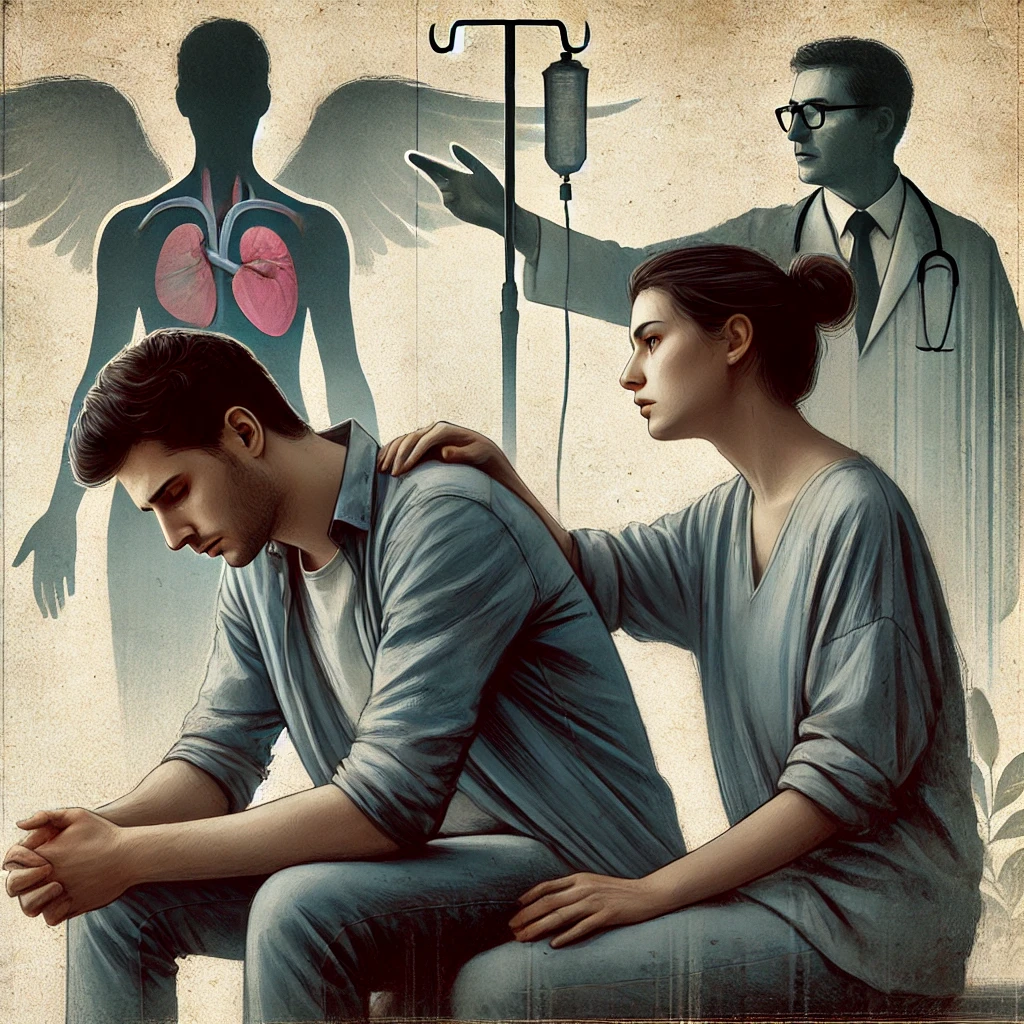If you’ve ever experienced a medical trauma, a traumatic experience related to the medical setting, you may have noticed some unexpected effects on your relationships. Maybe it’s more challenging than usual to interact with the people in your life and you’re wondering why.
After a medical trauma, you may feel that your sense of safety in the world has been rattled and as a result, it is not uncommon to begin behaving out of fear of potential dangers. Our brains are hard-wired to protect and keep us safe, even when we are no longer “in harm’s way” after a traumatic event has passed.*
What might this look like in relationships?
Everyone’s experience is unique and may vary on an individual basis. Here are some potential examples:
1. Changes for the future – Before a traumatic medical event, you may have had a different vision for a future that you share with others. This trauma may have resulted in a major, unexpected lifestyle change or loss. This could mean drastic alterations in your physical health, ability status, mobility, fertility, sexual function, motor or sensory function, or mental status. These significant changes can be difficult to navigate together because of what it means for the future of a family, couple, or social community.
2. Hypervigilance – A medical trauma may cause a heightened awareness of potential dangers and threats in all areas of life, including new or existing relationships. You might notice difficulty trusting others because of fear of being harmed. The world used to feel safe and maybe right now it doesn’t.
3. Attempts to control – As a result of an inability to change or control the circumstances surrounding the medical trauma, you may feel the need to control the people around you instead.
4. Anger – You may be feeling anger toward medical providers involved in your or your loved one’s care or traumatic experience. Lack of control and frustration about your circumstances can also lead to anger that gets directed toward loved ones unintentionally.
5. Misunderstanding from others – A medical trauma is easily misunderstood by others and can feel lonely and isolating when other people did not share your experience. Or if they did (such as multiple survivors of a car accident), perhaps they are processing it differently. Loved ones’ responses to your medical trauma may lack understanding and feel dismissive or insensitive. Because of a social perception that medical events are a “normal” part of life, some may fail to understand that a particular experience or outcome could be, in fact, traumatizing, because it is considered “within the realm of possibility,” commonplace or ordinary, or appearing to turn out well in the end (a possible example might be the delivery of a new baby via C-section).
6. Defensiveness – The feeling of vulnerability in the world after a medical trauma can make you perceive people’s interactions with you as more threatening than usual. A defensive or aggressive response may be an automatic way of trying to protect yourself.
7. Internalized shame – In response to medical trauma, you may have absorbed some negative beliefs about yourself. You may think you did something to deserve it, that you are bad, unworthy of love or forgiveness, or that you should have done something differently to prevent it from happening in the first place. Guilt and shame after a trauma can be very intense and result in extreme difficulty in giving and receiving love in relationships. Survivors may feel like a burden to others, withdraw, or detach from loved ones because of internalized shame.
8. Emotional numbness – You may notice feeling numb after a medical trauma. A lack of emotions (or lack of outward expression) after a trauma is one of many normal responses to an abnormal experience, and it can be easily misinterpreted by others. As a survivor, your loved one may have inherited assumptions about what is considered an “appropriate response” to the traumatic event. They may believe that your grief or recovery should look a particular way within a particular timeframe. This pressure can result in relational tension when expectations are not fulfilled.
9. Difficulty with intimacy – You may experience discomfort with emotional, physical, or sexual intimacy after a medical trauma. Enjoyable closeness with others generally requires feeling safe in your body to make yourself seen and known, but oftentimes the body is where the medical trauma took place. Intimacy may feel too vulnerable and threatening to your nervous system after spending time in “fight, flight, freeze, or fawn” mode, the four classic trauma responses. (For more information about the four trauma responses, see our blog)
10. Dependence on others – You may lose confidence in your ability to navigate the responsibilities and challenges of adulthood after a medical trauma. You may feel afraid of spending time alone. Decision-making may be more difficult. This might lead to leaning more on your support system for basic and complex functions of daily living as you continue to process.
These are some of the potential challenges you may face in your relationships while you recover from medical trauma. Everyone’s path to healing is unique, so it is important to allow yourself the space to discover what your individual needs are as you work through the healing process.
Check-in with yourself now. How are you feeling? Does this resonate with your experience of medical trauma and relationships? Are you looking for support from a therapist who “gets it?” We can help. If you are a California resident, you can also get professional and specialized support to help guide you through the complicated emotions and feelings tied to medical trauma. Book a free consultation today.











